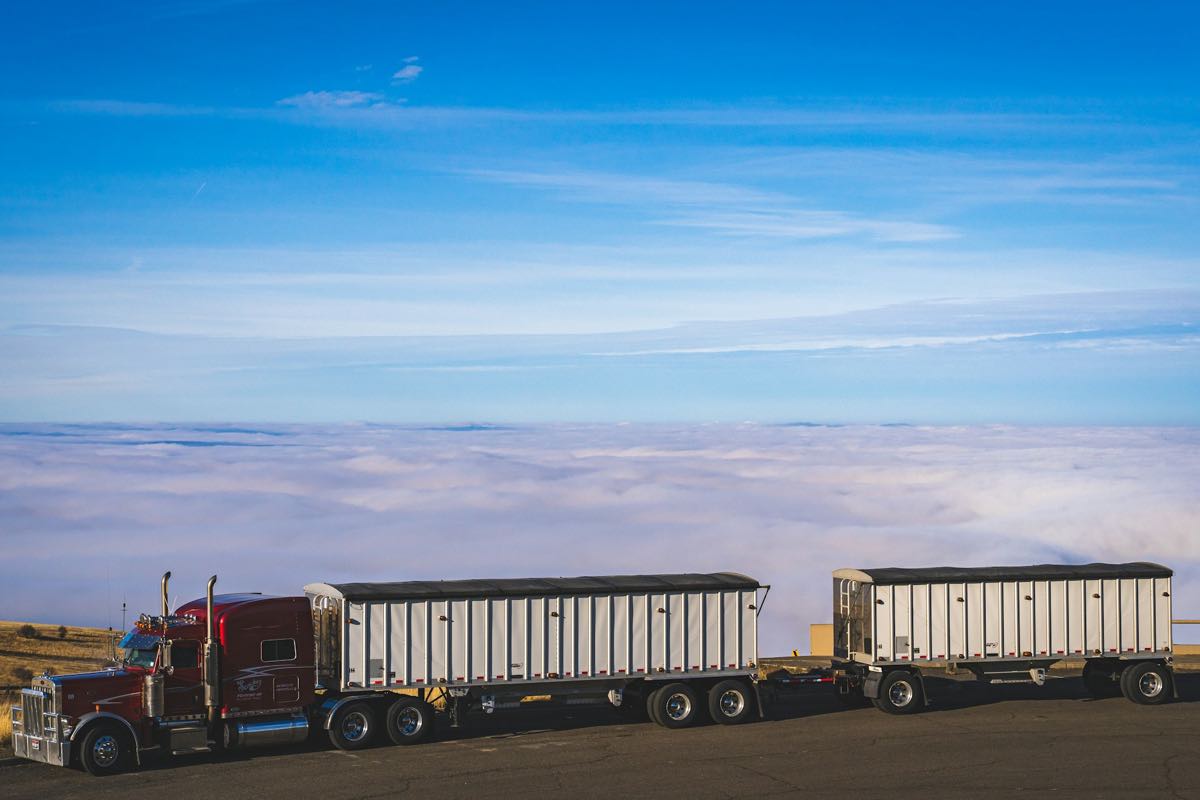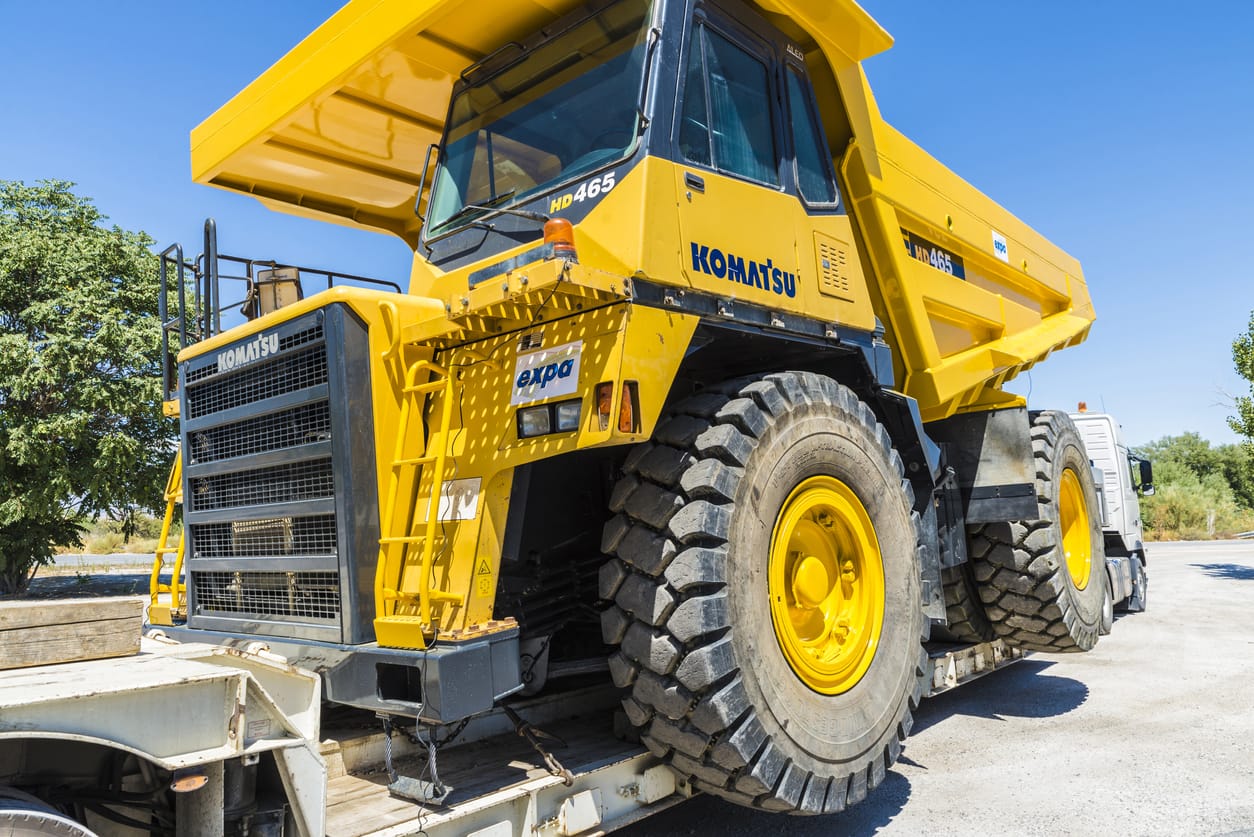In the United States, heavy haul transportation represents a highly multifaceted and high-stakes industry. Transporting large and heavy loads involves careful planning and execution in addition to a keen understanding of the hazards and difficulties involved. Owing to the substantial size and value of the shipments, a thorough comprehension of the unique aspects of heavy haul insurance becomes essential. This in-depth manual aims to help you make sense of the numerous variables affecting insurance prices while guiding you through the maze of available insurance coverage alternatives. It seeks to provide you with the information and tactics required to choose the best coverage, handle claims in an efficient manner, and reduce any risks that may arise from such big endeavors.
When it comes to heavy haul shipping, there is very little room for error. The uncertain nature of long-haul transportation, unanticipated damages, and accidents can put operators and clients at serious financial risk. The publication examines the many kinds of insurance coverages that are available, acknowledging the crucial role that insurance plays in this complex dance of risk management and logistics. Knowing your options—from cargo-specific coverage to general liability—is the first step to creating a safety net that is both complete and economical. We examine practical methods for striking the right balance between cost and coverage as we go further into the specifics of heavy haul insurance, protecting your assets while controlling costs.

Understanding the intricate details of heavy haul insurance is of the utmost importance for everyone involved in the transportation of large or heavy items. This kind of insurance includes a range of coverage choices intended to guard against the particular dangers connected to heavy haul transport. The first step in minimizing potential financial losses is to understand the various insurance choices. These range from protecting against liability claims to making sure the value of the cargo is protected.
General Liability Insurance: This foundational insurance coverage is mandatory for any heavy haul transport activity. It provides defense against allegations of property damage or physical harm brought on by your actions. For instance, general liability insurance can pay for the accompanying costs—legal or otherwise—if your transport unintentionally destroys a building or hurts a bystander, protecting your company from serious financial harm.
Cargo Insurance: Cargo insurance is indispensable for heavy and oversized cargo due to its high value and specialized nature. In transportation, it offers protection against theft, damage, and loss of equipment. Cargo insurance provides peace of mind to both the shipper and the carrier by guaranteeing that the financial worth of the items being shipped is protected, regardless of whether the cargo is accidentally damaged in a collision or stolen during a rest stop.
Commercial Auto Insurance: For any vehicle utilized in business activities, including large haul trucks and trailers, this kind of insurance is legally required by the DOT and FMCSA. It pays for repairs to the vehicle you own in case of an accident, no matter who is at fault. Because specialized transport trucks and equipment are expensive to replace and repair, commercial auto insurance is especially crucial for heavy haulers.
Workers’ Compensation Insurance: Workers that transport heavy haul freight run the risk of suffering injuries given that it can be a hazardous job. Benefits are paid to workers’ compensation insurance holders who have illnesses or injuries directly related to their jobs. In addition to being necessary by law in many jurisdictions, this coverage is essential for safeguarding your employees and making sure they receive the proper medical attention and lost income reimbursement.
Endorsements: Endorsements can be added to an insurance policy to cover particular risks related to heavy haul shipping, providing more protection beyond ordinary coverage. These might include protection against theft of the vehicle and its belongings or damage to the cargo caused by extreme weather conditions. Through the use of endorsements, you may customize your insurance policy to specifically address the weaknesses in your business and provide complete protection against a broader variety of probable occurrences.
Every one of these insurance types is essential to a heavy haul transportation operation’s all-encompassing risk management plan. Transporters may protect themselves against a variety of hazards encountered on the road and maintain the continuity and financial stability of their business by carefully choosing the appropriate combination of coverage.

Anyone involved in large haul transportation must understand the factors that influence insurance premium costs. These expenses can differ dramatically depending on a number of important variables, all of which influence the total risk evaluation that insurance companies make. This section focuses on the main factors that impact insurance rates for long-haul cargo, offering valuable perspectives on efficient cost control.
Insurance costs for heavy haul shipments are determined by:
Cargo Value: One of the main factors influencing insurance rates is the value of the cargo being transported. Because there is a larger financial risk involved in the case of loss or damage, higher-value shipments are by nature more expensive to insure. The premiums that insurers charge are determined by the possible payout necessary; more costs are required for expensive cargo in order to offset the increased risk.
Size and Weight: Insurance prices are greatly influenced by the shipment’s physical attributes, particularly its weight and size. There is a higher chance of mishaps that might result in claims when larger and heavier cargo need special care and transportation. As a result, the intricacy and hazards linked to moving such types of cargo immediately result in increased insurance costs.
Route Risks: The route that is selected for the transportation of heavy haul freight is a major factor in the cost of insurance. Insurers consider routes with a history of hazardous circumstances, heavy traffic, or a higher probability of unfavorable weather to be riskier. These variables increase the likelihood of mishaps or delays, which drives up the price of insurance to offset these elevated risks.
Security Measures: Insurance rates may benefit from the implementation of strong security measures. Insurance companies can be convinced that risks are being actively handled by taking precautions against theft, vandalism, and damage. Examples of these precautions include GPS tracking, safe parking, and improved cargo securing methods. Because it reduces the likelihood of claims, this proactive approach to cargo security can ultimately result in cheaper insurance rates.
Claims History: The past insurance claims history of a company or a person plays a significant role in setting future premiums. A history of several claims indicates a greater risk profile, which prompts insurers to raise rates to reflect the estimated chance of further claims in the future. On the other hand, a spotless claims record may be used as leverage to get cheaper rates, which would indicate that the insured party is not as risky.
As a whole, a variety of criteria pertaining to the cargo’s value and characteristics, the transportation route’s dangers, the security protocols implemented, and the historical frequency of claims all affect the insurance rates for heavy haul shipments. By choosing safer routes, improving cargo security, and keeping a clean claims history, shippers and carriers may successfully control their insurance costs by having a better understanding of these issues.

Selecting the right amount of heavy haul insurance coverage is essential to safeguarding your investment without incurring needless costs. Making this choice necessitates a thorough evaluation of the many variables that affect the expenses and hazards of moving large loads. We go into further detail about each factor below, walking you through the steps to make sure your coverage is ideal for your requirements and situation.
Assess Cargo Value: Start by assessing the entire value of your cargo in order to precisely ascertain the required level of coverage. This covers the purchase price as well as extra expenses for processing, shipment, and any lost time in the event that the cargo is delayed or destroyed. A precise appraisal guarantees that your insurance policy will cover the cost of replacing or repairing the cargo without placing a heavy financial burden on your company.
Identify Potential Risks: The hazards associated with each shipment are different and depend on the kind of cargo, the route used, and the form of transportation. Knowing these risks is essential, whether it’s from exposure to the environment, theft in high-risk regions, or vulnerability to harm from vibrations. By identifying prospective risks, you may customize your insurance coverage to hedge against those particular hazards and avoid being caught off guard.
Review Contractual Obligations: It is not negotiable to comply with contractual responsibilities. Minimum insurance requirements are included in many contracts with clients or transportation partners. By closely examining these contracts, you can make sure that your insurance coverage complies with these requirements or surpasses them, protecting you from contractual violations and building confidence with your partners.
Consider Worst-Case Scenarios: Choosing insurance coverage requires some, if unpleasant, planning for the worst-case scenario. It is possible to determine whether your prospective insurance policy would provide sufficient protection by visualizing the complete loss of your cargo or irreversible damage. This assures that, should a calamity strike, your company may bounce back without suffering irreversible financial damage.
Balance Coverage and Cost: Achieving the ideal mix between extensive coverage and affordable expenses is essential. Although it may be alluring to choose the maximum amount of coverage, doing so may result in excessively high rates. On the other hand, inadequate coverage could save money in the short term, but it puts you at serious danger. Finding a balance is comparing the cost of your insurance to the possible dangers, making sure you’re neither over-insured nor under-protected.
It is important to have a thorough grasp of the value of your cargo, potential dangers, contractual duties, and worst-case situations when choosing the appropriate coverage level for heavy haul insurance. The goal of this procedure is to strike a balance that offers sufficient security without incurring needless costs, not to identify the most affordable solution. You may obtain insurance coverage that satisfies your legal and contractual requirements while also giving you peace of mind since you know your cargo will be well-protected during the voyage if you carefully consider these factors. 
Effective management of the claim procedure is essential for a timely settlement and financial recovery when a large haul shipment sustains damage or loss. This section provides essential instructions to help you handle the intricacies of damages and claims so you may be ready to take immediate action. Knowing what steps to follow after an incident can have a big influence on how your claim turns out from the very beginning.
Immediate Action: Contact the insurance company promptly to file a claim. It is imperative that you notify your insurance carrier as soon as you become aware of any loss or damage. Being timely not only shows that you are a conscientious customer but also enables the insurance provider to get started on the claim processing right away, which might expedite the settlement of the claim.
Document Everything: Provide detailed evidence of the damage and cargo value. Compiling thorough paperwork is necessary to support your claim. This entails documenting the damage using pictures or videos, getting duplicates of the shipping paperwork, and gathering any invoices or estimates that show the cargo’s value. Accurate assessment of damages may be ensured by using such comprehensive documentation, which can prove crucial in the assessment of your claim.
Cooperate with Investigations: Assist the insurance company in their assessment process. The insurance company may launch an investigation to find out the details and full amount of the loss or damage when a claim is made. It is imperative that you cooperate throughout this time. A comprehensive and effective inquiry that results in an equitable evaluation of your claim can be facilitated by granting access to the cargo, the transport vehicle, and any pertinent paperwork.
Understanding Coverage Limits: Be aware of any policy limitations before filing a claim. Before submitting a claim, it is essential that you be aware of the details of your insurance policy, including the coverage limitations and any exclusions. Knowing these specifics helps you plan for any potential coverage gaps that can have an impact on the amount of compensation you get and guarantees that you have reasonable expectations regarding the claim’s result.
A proactive and knowledgeable strategy is necessary for managing claims and losses effectively. This includes notifying your insurer as soon as possible, thoroughly documenting the occurrence, and cooperating with the insurance company’s investigative processes. Comprehending the minute details of your coverage limitations improves your readiness, guaranteeing that you maneuver the claims procedure with assurance and efficacy. You may lessen the impact that losses or damages have on your heavy haul operations by adhering to these recommendations, and you’ll be able to get a resolution that meets your requirements and expectations.

Heavy haul freight transportation carries a number of challenges that, if not adequately managed, might result in loss or damage. You need to have a thorough plan that covers all possible risks in order to guarantee the security and safety of your shipment during the entire process of shipping. The following actions are necessary to reduce hazards and protect your goods from point of departure to point of arrival.
Select Reputable Carriers: Choosing carriers with a track record of dependability and safety is very important. The chance of accidents occurring during transportation is considerably decreased by these carriers since they maintain their equipment to the highest standards and invest in intensive training for their employees.
Secure Cargo Properly: A key component of preventing damage during transit is proper cargo securement. By using the proper padding and restraints and following industry best practices for securement, one can lessen the dangers related to vibration and movement while driving.
Insure Your Cargo: Getting full insurance protection for your cargo provides financial security against unanticipated events. In addition to providing peace of mind throughout the shipping procedure, insurance also protects the loss or damage to the cargo.
Protect Against the Elements: The integrity of your cargo may be seriously threatened by weather. Putting preventative measures in place to keep your cargo dry and safe from the elements includes using temperature-controlled containers, waterproof coverings, and route planning to avoid bad weather.
Monitor the Transport Process: It is possible to take quick action in the event of any problems by closely monitoring your shipment using tracking technology and receiving frequent information from the carrier. Monitoring makes it possible to react quickly to any unfavorable circumstances or damages, guaranteeing a timely resolution and reducing any losses.
You may successfully reduce the risks of loss or damage by using these strategies in your preparation for heavy haul transportation. This proactive strategy guarantees a more streamlined and dependable shipping procedure in addition to safeguarding your investment.

Getting the proper insurance coverage is essential to protecting your valuables in the complex environment of heavy haul shipping in the United States. It is vital to comprehend the many insurance solutions that are accessible, identify the variables that influence expenses, and choose the coverage that most closely matches your requirements in order to efficiently reduce the dangers involved with moving oversized and heavy objects. This information gives you peace of mind during the shipping procedure in addition to ensuring the safety of your cargo.
Ship A Car, Inc. (SAC) stands out as the best option for moving heavy haul machinery and equipment throughout the United States. SAC offers a range of services designed to satisfy the particular requirements of heavy haul transport and combines industry knowledge with a dedication to professionalism and dependability. Our committed transport advisers will stop at nothing to make sure your cargo arrives on schedule and safely, whether you’re transferring industrial machinery, construction equipment, or other oversized cargo. They will even suggest the best routes and approaches for your particular requirements.
When you work with Ship A Car, Inc. for your heavy haul transportation requirements, you’re working with a business that puts your cargo’s security, punctuality, and satisfaction in general first. SAC offers you access to a network of knowledgeable experts and resources that can tackle any transportation issue, all supported by an unwavering dedication to quality that makes us stand out in the sector. Give Ship A Car, Inc. a call at (866) 452-3657 to experience our unmatched service and support or click here for a quote. Don’t trust anybody else to handle the safety of your heavy haul shipments. Allow us to handle the logistics of the shipment so you can focus on enjoying a smooth and worry-free shipping experience from beginning to end.
Q: What is the most crucial type of insurance for heavy haul transport?
A: It is essential to get cargo insurance in order to safeguard the value of the cargo against the possibility of theft, damage, or loss while it is in transit.
Q: How can I reduce my heavy haul insurance premiums?
A: Assuring that cargo is adequately secured, selecting routes that are safe, putting security measures into place, and keeping a clean claims history are all ways to get lower rates.
Q: What should I do immediately if my heavy haul shipment is damaged?
A: Immediate contact with your insurance provider, detailed documentation of the damage through the use of photographs or videos, and the provision of any pertinent paperwork on the market value of the cargo.




